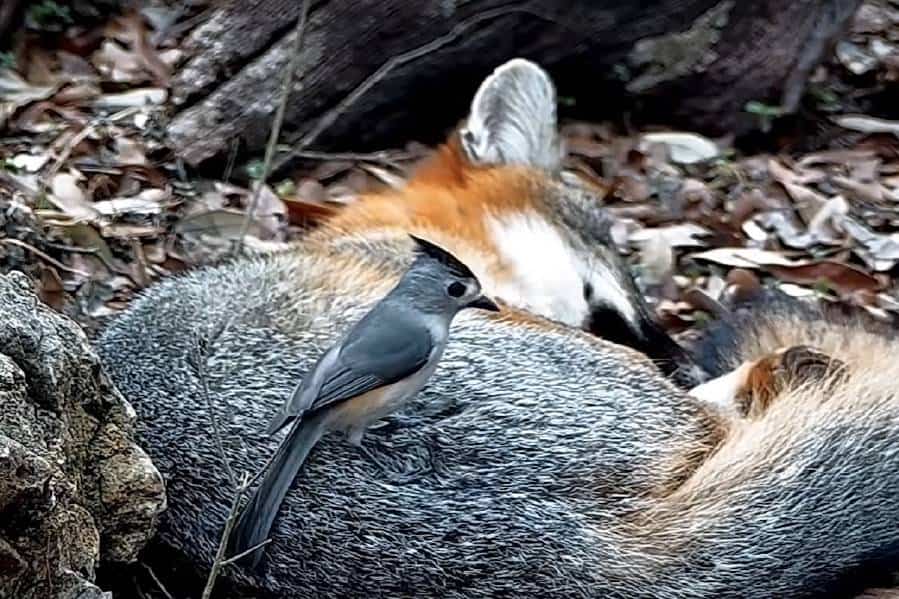
Dozens of online videos document an unusual behavior among tufted titmice and their closest bird kin. A bird will land on an unsuspecting mammal and, cautiously and stealthily, pluck out some of its hair.
A new paper in the journal Ecology documents this phenomenon, which the authors call “kleptotrichy,” from the Greek roots for “theft” and “hair.” The authors found only a few descriptions of the behavior in the scientific literature but came up with dozens more examples in online videos posted by birders and other bird enthusiasts. In almost all the videorecorded cases, the thief is a titmouse plucking hair from a cat, dog, human, raccoon or, in one case, porcupine.
Many species of titmice, chickadees and tits – all members of the family Paridae – are known to use hair or fur to line their nests, said Mark Hauber, a professor of evolution, ecology and behavior at the University of Illinois Urbana-Champaign who led the write-up with postdoctoral researcher Henry Pollock. The hair’s role in the nest is still debated, although it is more commonly used by birds nesting in temperate climates, so maintaining warmth in the nest is thought to be one advantage.
The impetus for the study came from a chance sighting. Study co-author U. of I. natural resources and environmental sciences professor Jeffrey Brawn first observed the behavior with Pollock while on a spring bird count in central Illinois.
Scientists once assumed that birds with hair in their nests had collected it from the carcasses of dead mammals or found hair that had been shed into the environment, Brawn said.
“But the titmouse I saw was plucking hair from a live animal,” he said. “This was from a live raccoon with claws and teeth. And the raccoon didn’t seem to mind because it didn’t even wake up.”
A search of published research turned up just nine studies that documented 11 instances of the behavior, but a YouTube search yielded many more cases, Hauber said. Sometimes the target animals were sleeping, and sometimes they were awake.
from ScienceBlog.com https://ift.tt/3ygIs7E

Hello everyone, I want to say a special thanks to Dr OGU. for helping me get cured from herpes virus 2019 , I contacted him base on the testimonies I saw about him on the internet I was diagnosed of HERPES Virus i have tried all I can to get cured but all to know avail, until i saw a post in a health forum about a herbal man who prepare herbal medication to cure all kind of diseases including HERPES virus, at first i doubted if it was real but decided to give it a try I was cured by his herbal medicine and natural herbs, kindly contact him today through his email: drogugusolutionhome@gmail.com or text/call: +1 (719) 629 0982
ReplyDeleteHe’s waiting to help you.
HE ALSO SPECIALIZE IN THE FOLLOWING Illness;
If you have any sickness like : H I V/AIDS , CANCER , HERPES 1 or 2 , GENITAL WARTS (HPV), and Hepatitis B. Trichomoniasis Gonorrhea, Epilepsy, and Syphilis.